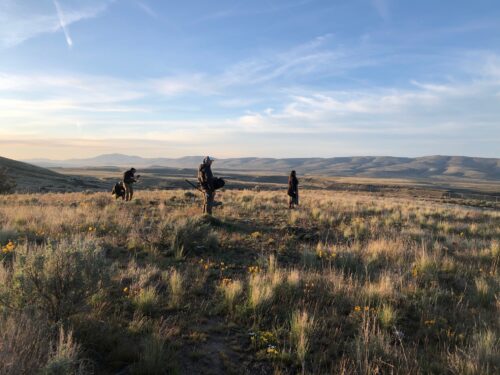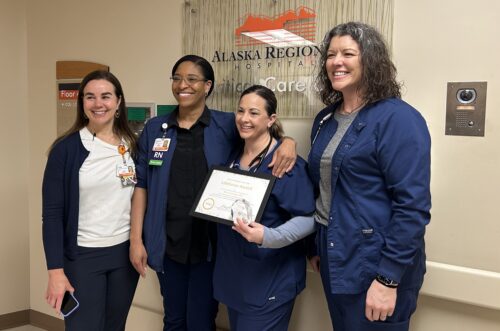 Leaders in Donation Series: Susan Stacey, Chief Nursing Officer, Providence Sacred Heart
Leaders in Donation Series: Susan Stacey, Chief Nursing Officer, Providence Sacred Heart
The medical professionals we work with have a significant and direct influence on donation outcomes. Just as the geography and demographics of our vast service area differ from place to place, so does the donation experience. In an effort to celebrate the successes and highlight the unique obstacles of our donation partners, we interviewed leadership from around our region to ask why donation is important to them and what they enjoy most about living and working where they do. We are proud to feature Susan Stacey, Chief Nursing Officer, Providence Sacred Heart Medical Center and Children’s Hospital as our March “Leader in Donation”.
Providence Sacred Heart is a level two trauma center located in Spokane, WA and is the second largest donor hospital in the LifeCenter service area. In addition to having a significant number of donations, Sacred Heart is also a transplant center transplanting hearts, kidneys, and pancreas. In 2017, Sacred Heart had 24 organ donors, saving the lives of 78 people, and had a donation rate* of 71%. We recently sat down with Susan to learn more about Sacred Heart’s successful donation program.
*Donation rate: The percentage of potential donors who become donors.
What does organ and tissue donation mean to you?
As a hospital, I think organ and tissue donation is a way for us to bring meaning to tragic events that occur in people’s lives and give families the opportunity to find a positive within the darkness that they are going through with the death of a loved one. It really is a privilege to be a part of that. Secondly, I think we have an obligation as a transplant center to be a part of the whole process of transplantation; the beauty of being here is that although we witness the sadness, we also get to see the joy of the person who gets a new kidney, or a new heart, and what that brings to their lives.
Best Practice: Providing greater awareness of the benefit of transplantation to waiting recipients can help hospital staff understand the importance of seemly insignificant portions of the donation process, which may ultimately have a huge impact.
What makes you most proud of working at Sacred heart and why?
Our mission. It is not something that is on the wall, it is something that I feel every day is exemplified by our caregivers. We live it through the work of organ donation; we live it through the work that we do to save lives and to care for families. One of the things that I am very proud of is that we have our donor quilts that are made by a woman who works in the business office and she started the program.
The other thing that makes me proud about working here is that caring for patients is not just a clinical role. It’s a role of everyone here – people who work in all sorts of areas of the hospital contribute to patient care.
Best Practice: Hospitals with successful donation programs see donation as part of their mission and patient and family care.
Why has your donation program been so successful and what drives you to make donation a priority in your hospital?
I think the program is successful because the individual leaders on the units really do value donation; they support their staff, they support families, they support the providers. Our relationship with LifeCenter is not one that is just on paper- it’s a living, breathing part of our work here. The folks who come from LifeCenter to help with organ donation don’t feel like visitors, they are part of our team; because of that, the program is ours, not LifeCenter’s, and I think that puts us to a place of growth and collaboration with mutual respect and mutual goals around where we want to head.
Best Practices:
- Successful donation programs have key individuals throughout the hospital who spearhead improvement efforts and ensure strong collaboration between LifeCenter and the hospitals. These Donation Champions have a huge influence on the hospital’s donation outcomes.
- Hospitals who take ownership of their donation program see positive results because they implement systems that work for their processes and hospital culture.
What’s unique about healthcare in our region?
The most unique thing is the rural nature of our communities. There are very few large centers in these areas, and there are hundreds of miles between people and their healthcare facilities, even on a primary care level, let alone a tertiary care level. That rural nature, really makes a difference in our territory. Just getting families to the hospital is an incredibly different challenge than what you would experience if you lived in the urban west side of the state. The types of injuries we see are also different because of the agricultural nature of what we have and the recreation aspects of what people do. We have a tremendous amount of diversity.
What do you love about living in Spokane?
I love living in this region because you are close to everything, but it still feels like an overgrown little town. It doesn’t have a city feel, but it has the city attributes.





